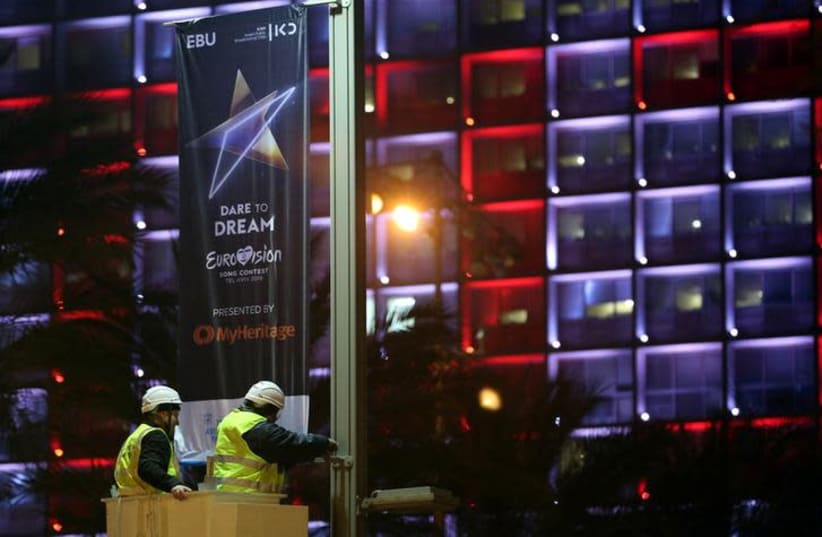According to social media posts from the visiting contestants, things are business as usual. In a video message, the members of Keiino said “we can’t wait to be back here in May.”They also posted a photo of themselves, “sightseeing in Tel Aviv after interviews” on Monday evening. Members of D-Moll posted images from both filming and touring around Israel.And Todevska posted on Twitter from the airport: “Shalom Israel. I am not a morning person but I am really looking forward to my first trip to Israel to record my Eurovision postcard. Love you all.”
KAN told the Post on Monday that it is “in constant contact with the EBU and the delegations currently in Israel to film their postcards. Their safety is our highest priority, and they have been briefed on the situation,” a spokesman said. “Currently, there are no changes in their production schedules.” An Israeli communications consultant involved in organizing the postcard-filming visits said that the delegations “have no concerns; everything is proceeding as usual.”That attitude seems to be currently prevailing among Eurovision organizers and officials. But the classic Israeli approach of “everything will be OK” can only go so far.In less than two months, more than 100 million people will be tuning in to watch the biggest international singing competition in the world.No matter the intense security preparations, Israeli officials cannot promise the EBU that rockets won’t be fired at Israel during the Eurovision. KAN cannot ensure the contestants from around the world that they won’t be targeted by Hamas missiles.Over the next 50 days, the thousands of people involved in making the Eurovision in Israel – one of the largest international events in the country’s history – a reality, will be hoping for quiet. But there are no guarantees.Shalom Israel. ❤ I am not a morning person but I am really looking forward to my first trip to Israel to record my Eurovision postcard. Love you all. ❤#teamtamara #proud #esc2019 pic.twitter.com/UhCd0Kz14f
— Tamara Todevska (@TamaraTodevska) March 25, 2019
